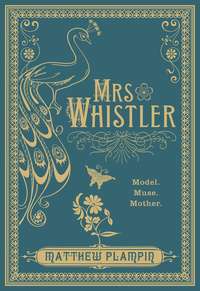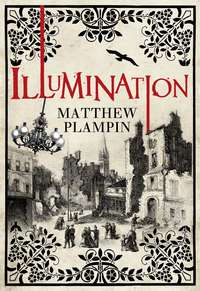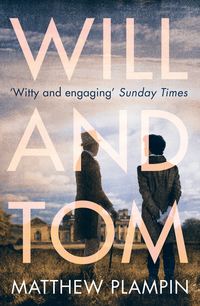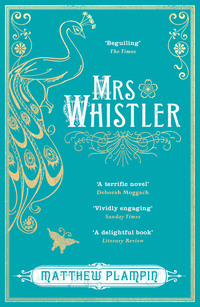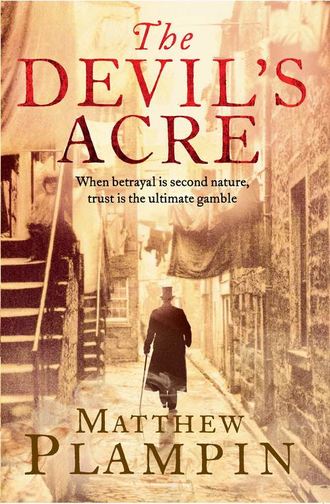
Полная версия
The Devil’s Acre
Nancy, the girl across from Caroline, cleared her throat pointedly. This could only mean that Mr Alvord, their overseer, was approaching. Abruptly, Caroline turned from the window and reapplied herself to her labours. The drilling machine was about the size of a household mangle, but far more intricate and weighty in construction. Everything centred on the pistol part held in its middle by an elaborate clamp. This particular part was called the hammer, but to Caroline it looked more like a small twig or a wishbone. It was certainly hard to imagine this delicate piece of steel fitting into anything as deadly as a gun; hang it on a length of chain, she’d thought when first she saw it, and it would make a pretty pendant. Two different-sized holes had been run through the hammer presently fixed in the machine, which meant that there was one more left to do. The rotating head suspended before her held three drill-bits. At that moment, however, she couldn’t for the life of her remember which bit to use.
Compared with other factories that Caroline had seen – a few mills and potteries, glimpsed from the street – the machine floor of the Colt works was almost disturbingly quiet. The labour done there largely involved making adjustments, aligning clamps and so on; the machines were actually engaged for a few seconds only, and would emit no more than a high, rasping whine. There was the slapping of the belts, and the constant background hum of the brass driving cylinder overhead, but for much of the time the floor was swaddled in a schoolroom hush. The sound of men’s boots coming up behind her was thus clearly audible, and she stiffened at it; there were at least five pairs of them. Chancing a backwards glance, twisting momentarily atop her stool, she saw that the chubby, bland-faced Mr Alvord was surrounded by numerous others, more than she had time to count. They were all following an imposing bearded fellow, thick-set and tall, who looked like he knew his way around a gaming room – Colonel Colt, her employer.
Frowning in concentration, knowing that she must make a convincing display for the Colonel’s sake, Caroline turned the drill-head to the left. It slid around easily, with a heavy, well-greased clunk. She leaned over to pull the lever that would connect her machine to the spinning cylinder ahead.
‘Mr Alvord,’ said a deep Yankee voice at her shoulder, ‘if I’m not mistaken, this girl is just about to sink a second bolt-cam hole through that there hammer.’
This voice, of course, belonged to Colt. Caroline cursed her luck. Alvord was at her side the very next instant, smelling of bad teeth and root ginger, disengaging the belt, rotating the drill-head, apologising profusely for her stupidity. She looked around, thinking to assume her best servant’s manner and assure the Colonel that it wouldn’t ever happen again.
A small, hard eye was scrutinising her from beneath the brim of a strange Yankee hat. ‘That hammer is the most vital part of a Colt pistol, young miss,’ the Colonel said, not entirely unkindly. ‘It’s what marks us out from our main rivals in this city. You be sure to learn how to drill it properly.’ He swivelled on his heel so that he faced the overseer. ‘And Mr Alvord, p’raps you might like to deliver your lesson again. Although it is true that even the most slow-witted of humans can be trained in the operation of my machines, the rate of success does depend a little on the quality of the goddamn instruction.’ With this, the gun-maker strode away in the direction of the jiggers and the lock-frames – the heavier devices that shaped the central parts of the revolver.
Alvord, enraged and humiliated, pointed to the drill-head. ‘Start at position one, turning anticlockwise.’ He indicated each bit in turn. ‘That’s the hammer spring; the bolt cam; the main spring roller. If you don’t have it by the end of the day we’ll be replacing you in the morning, understand?’
Caroline nodded, repeating the names of the drill-bits. Alvord had already left, though, starting after Colonel Colt. She became aware that one of the Colonel’s followers had become detached from the train, and was lingering by her machine. Hands on the drill-head, she aimed a sly sidelong look in his direction. There stood a young man in an English frock-coat and top hat, a junior office type of the sort you saw perched up on the roofs of omnibuses bound for the City, smoking their cigars and surveying the streets below as if they were the rightful owners of all London. She supposed that this particular fellow was part of Colonel Colt’s English establishment. He had a cool quality about him, though, a watchfulness, that held an undeniable appeal. He was studying her closely. Pausing in her work, she put a hand on her hip and met his gaze, thinking to embarrass any ignoble intention that might be lurking in his mind.
Caroline recognised him – the straight, short nose and smooth brow, the neat, coppery whiskers, the faint quizzical cast to his lips. It was the gentleman she’d seen in the yard on that first morning, a fortnight previously. He tipped his hat to her and went after Colt.
‘The Colonel’s starting to fret,’ whispered Nancy knowingly. ‘That’s what it’s all about. Word is that he’s looking to show the factory off as soon as he can, to the Army and some government toffs most likely. But now, just as he’s got the engine running nicely at last, his chief engineer goes and gets hisself knocked senseless.’
Caroline met this rather absently. ‘What are you on about, Nance?’
Keen to be the bearer of gossip, Nancy leaned in closer, poking her flat, snub-nosed face between the raised parts of her machine. ‘The beatings, Caro – ain’t you heard? Mr Quill the Yankee engineer and his paddy assistant. Got served out something proper last night in Pimlico, up on one of Mr Cubitt’s sites near Warwick Square.’
The smart young man left Caroline’s mind at once. ‘What?’
Nancy was well pleased by this response. Nothing gave this sturdy factory veteran more satisfaction than to adopt the guise of the wise old hand with privileged information to share. ‘They’ll be all right, best anyone can tell,’ she said casually. ‘In a week or so, anyway. The Colonel’s got ‘em laid up in the Yankees’ lodging house over on Tachbrook Street. Brought in a doctor and everything. No one knows who done it. There’s stories aplenty, o’ course.’
This was why Martin hadn’t been down in the yard with Slattery. He was lying all bashed up in a Pimlico lodging house. Amy would be going mad with worry. Would he have thought to get word to her? Would he have been able to? Helplessly, Caroline looked around the long, dingy machine room; at the Colonel’s greasy metal contraptions, their operators hunched over them as if they were being slowly devoured; at the complex cat’s-cradle of machine-belts, flapping and tensing with the shifting of the levers. It was only late morning. There was no chance of her being able to get away before seven. When she’d been taken on, the foreman had stressed that any unexplained absence from your machine during factory hours would see you slung straight out the gate.
Caroline tried to return her attention to the drill-head, but she couldn’t stop thinking of Martin – of what had befallen him and Mr Quill after she’d spoken with them in the Eagle. Why would anyone attack them like that?
She could only come up with one possible answer. It had to be something to do with Pat Slattery.
All fifty of Colt’s female operatives were employed in the same region of the works, on the lighter machines, and they took their dinner together. They sat by the water trough in the centre of the yard, chattering and laughing as they ate. Caroline stayed apart from them, having no wish to listen to their excited speculation about the beatings. She’d bought a white onion and a piece of cheese, but frustration and worry had taken away her appetite completely. Pacing the factory’s boundary, she peered out through the railings, along the wide river in the direction of Westminster.
The bell rang, summoning them inside. It occurred to Caroline that she could just walk into the forging shop right then, confront Slattery and demand that he reveal everything he knew, for the sake of Martin’s wife and children. This was a tempting notion indeed. Crossing the yard to the sliding factory door, preparing to file in behind the other women, she imagined herself simply doing it: turning away from the staircase, weaving between the drop-hammers, approaching the Irishman as he stoked his fire and saying her piece with righteous, unchallengeable anger.
But there was no time; and besides, one of the Yankees would be sure to see her, Mr Alvord would be informed, and she’d be dismissed before you could say ‘main spring roller’. Caroline went back up to her machine and drilled hammers all through the grey, everlasting afternoon, fidgeting with agonised boredom. When the final bell eventually sounded she was the first down the stairs and out into the deepening darkness. She left by the pedestrian gate at the rear of the works, intending to learn what she could of Martin’s condition and then go to Amy. This gate led onto Bessborough Place, the shadowy, featureless lane that lined the factory block’s north-eastern side. From here it was only a short walk to the Americans’ lodging house on Tachbrook Street. A large corner residence at the street’s southern end, it had the grand, fresh-made look common to all of Mr Cubitt’s Pimlico; the Colonel clearly believed in ensuring the comfort of his senior staff. She could see a couple of them through the windows, lounging in a gas-lit sitting room, laughing over something they’d read in a newspaper.
Caroline straightened her bonnet, screwed down her courage and knocked at the front door. It was opened by an elderly male servant who studied her with a knowing leer, no doubt assuming an unsavoury reason for her call. She was about to explain herself when she noticed two people sitting on a bench across the hall, directly opposite the doorway. One of them was Martin. He had a blanket over his shoulders and a wide, blood-spotted bandage wrapped around his brow. His ribs, too, were bound, as was his right wrist; in all, he looked more like a stricken soldier than an apprentice engineer.
Pushing past the servant, Caroline started towards him. The other person on the bench rose to meet her, and she realised that it was the fellow from the machine floor – the smart young man with the coppery whiskers. He was holding his top hat in his hands, as if about to go out; his hair was thick and straight, combed back from his brow in a neat, dark diagonal.
‘You are acquainted with Mr Rea, miss?’ he inquired.
Caroline nodded. ‘He’s my sister’s husband, sir. She’ll be worried half to death.’
Martin hadn’t reacted to her appearance in the lodging house. This wasn’t so unusual. Her brother-in-law was prone to strangeness, his gaze icing over as he became sunk in his own private thoughts. That evening, however, he appeared to be barely conscious, swaying slightly where he sat as if drunk.
‘My name is Edward Lowry,’ the man said. ‘I am the Colonel’s London secretary.’ He spoke in a clear, polished voice, by the standards of the Colt factory at least – this secretary plainly had education, if not wealth or breeding.
‘Caroline Knox, sir,’ she replied, dropping a small curtsey.
Mr Lowry looked back at Martin. ‘The doctor says that Mr Rea here took several rather brutal kicks to the head, and remains seriously disorientated. He is set on returning to his home, though, as soon as possible. At once, in fact.’
‘Martin is a determined fellow, sir. Mulish by nature.’
‘The Colonel is upstairs, talking with Mr Quill. He has instructed me to honour Mr Rea’s wishes – to discover his address and put him in a cab. I was going to take him over to Moreton Street and flag one down.’
Caroline shook her head. ‘No cab will go where this cove lives, Mr Lowry. Let me ride with him. I’ll get the driver to drop us on Broad Sanctuary. I can get him back from there.’
‘Very well, Miss Knox.’ He smiled, rather pleasantly Caroline had to admit, meeting her eye for just a second longer than necessary; then he turned to the injured man on the bench and put on his hat.
Martin glanced up at them both, seeming to understand what they’d been discussing. His face looked wrong, lopsided and red, and scratched all over with angry cuts; the bandages had gathered his bushy black hair into a single unruly clump. He winced as if the dim lamp on the wall behind Caroline was painfully bright. ‘Let’s be off, then,’ he managed to croak.
The three of them tottered out into the street, Martin leaning heavily on Mr Lowry. They’d progressed about thirty halting paces along Tachbrook Street when there was movement somewhere behind them – rapid movement. Caroline felt a quiver of fear. Was it Martin’s mysterious assailants, come to finish the job, along with any who might be with him? But no; before she even had time to turn, she heard the muttering, the accents, and knew immediately who it was.
The Irishmen came from the direction of the factory. There was an odd, monkish detachment about them. They did not speak to or even look at Caroline and the secretary, closing around Martin like so many pallbearers and all but hoisting him from the pavement. Mumbling something, Amy’s name it sounded like, he barely noticed the change.
‘All right, men,’ announced Mr Lowry from his new position on the edge of this group, recognising the new arrivals as Colt workers and trying to take charge, ‘we’re moving him up to Moreton Street, just a few yards ahead. There I shall secure a cab, and instruct the driver to transport this poor fellow to his –’
Disregarding him entirely, the Irishmen started off in the opposite direction, back towards the factory. Caroline recognised one of them, a tall, bearded fellow named Jack Coffee, and called out to him. She’d met Jack on a couple of occasions when visiting the Devil’s Acre and had found him to be a mild, peaceable soul; a little slow-witted, perhaps, but friendly. Right then, though, he was in no mood to talk to her.
‘We’ll take him home, Caro,’ he replied quickly. ‘Don’t you be worrying none.’
‘I’ll come too.’
‘Come tomorrow. Our boy here needs t’ sleep.’
‘What of Amy and the children? I’ll –’
‘Leave ‘em be, will ye?’ spat another voice, higher and more nasal than Jack’s. She realised it was Pat Slattery’s. Half a head shorter than the rest, he was over at Martin’s other side. ‘Jesus. Don’t you have a life o’ your bleedin’ own?’
They picked up their pace, carrying their friend off at some speed. Caroline stood watching as they disappeared around a corner, heading in the direction of Westminster, smarting at Slattery’s harsh words. He knew who she was, although they’d never spoken before then. She guessed that he’d been given an unflattering report by Martin; he certainly didn’t seem to like her. Was he annoyed that she was also at Colt, perhaps, thinking that she’d interfere somehow in whatever they might be up to? She cursed herself for not returning his scorn in kind, and swore that she wouldn’t let him get away so easily in future.
‘It would seem that we are both surplus to requirements, Miss Knox,’ Mr Lowry said with a grin, taking a cigar from his pocket. He lit it, tossing the match in the gutter; then he turned towards her, considering something. ‘Would you have me walk you home, since I am already out here in my hat and coat? Whereabouts do you live?’
Caroline remembered the look they had exchanged up on the machine floor, and before that, out in the factory yard; and how both had been terminated. ‘Won’t Colonel Colt want you, sir?’
‘We have an appointment at eight,’ he answered, ‘which leaves me the better part of an hour. Besides, the Colonel instructed me to see a Colt employee to safety, and that is exactly what I would be doing. Pimlico has revealed itself to be a rather dangerous place of late, as you well know.’
Caroline found that she welcomed the thought of some company. Seeing her brother-in-law so reduced, and then being shooed away from him so curtly, had left her feeling a little odd; jarred, almost. She went over to Mr Lowry and took his arm, telling him that she had a room in Millbank, a short way past the Vauxhall Bridge Road. Together, they walked up to Moreton Street. He asked her how she’d come to be at the Colt factory.
‘Believe it or not, sir, it was down to those Irishmen back there,’ Caroline replied. ‘My sister told me that they’d found work at a new American pistol factory by the river, and that the Yankees were still hiring operatives for their machines. I was in urgent need, you see, having recently lost my position up in Islington.’ She paused. ‘I was a housemaid.’
‘I suspected as much,’ the secretary remarked, puffing on his cigar. ‘You have the diction of a good servant, Miss Knox, if I may say, and the bearing as well.’
Caroline glanced at him. ‘But not the temperament, Mr Lowry – or so they liked to tell me. When the family took a hard knock and half of us were made to go, I was the very first one they picked out of the line. My mistress wrote me a letter, but that was only so I’d leave without a fuss.’ She lifted her chin. ‘I’d had enough of service anyway, to tell the truth. I wanted a change, and Colonel Colt seemed to fit the bill nicely.’
They arrived at the Vauxhall Bridge Road. Bright and noisy after the stillness of Pimlico, it was blocked by the usual unmoving chain of evening traffic. Fog was growing in the damp air, creeping around buildings, lamp-posts and carriages like soft mould. Caroline and the secretary stepped from the pavement, slipping between the stationary vehicles and the snorting horses reined up before them. As they reached the opposite side, Mr Lowry asked her who she’d worked for in Islington. She gave him a brief account of the end of the Vincent household. He recalled the case clearly, it turned out; it had even informed his own decision to join the Colt Company.
‘Four decades of unstinting labour and that is the fate that befalls you. Everything stripped away in an instant. A sudden plunge into despairing destitution, with suicide the only possible release.’ He shook his head. ‘I wasn’t prepared to take such a chance with my life. Like you, Miss Knox, I resolved to move on – to apply myself to something with a sense of real certainty about it.’
Caroline considered the sheen of Mr Lowry’s top hat, the crisp whiteness of his collar, the cigar smoking in the corner of his mouth; and she thought, you ain’t quite like me, though, are you, sir?
The wall of Millbank Prison came into view between two low terraces. Steeped in noxious fog, the monstrous building beyond was like a distant black cliff, forbidding and unreachable.
Mr Lowry looked over at it. ‘You live next to the prison, miss?’ he asked, the smallest trace of disquiet in his voice.
‘A couple of streets past it,’ Caroline replied. ‘Sometimes, from my window, I can hear those locked up inside,’ she added mischievously, ‘ranting and raving, and calling for help. They’re kept completely apart, you know – alone in their cells for all but one single hour of the day. Drives some of the poor beggars clean out of their minds.’
‘Good God.’ The secretary took a long drag on his cigar.
She led him on towards the lane that held her lodgings. ‘You think our Colonel is a certain bet, then, Mr Lowry?’
He returned gladly to his previous subject. ‘As near as is possible, Miss Knox, I’d say. The Colonel’s wares are peerless, as is his method of production. There’s demand for repeating arms at present – a vast, international demand. We’ve all been given a singular chance to improve our lot.’
Caroline was sceptical. ‘You’ve been given a chance, Mr Lowry, that I don’t doubt – but I can’t see the Colonel doing very much more for the likes of me.’
‘You cannot know that, Miss Knox. If you prove yourself a steady worker, you will rise. That’s the Colonel’s policy. Other departments will open in the coming months – a packing room, for instance – that an intelligent woman such as yourself could easily be placed in charge of.’
She studied his smile as best she could in the gloomy lane. He was perfectly sincere. ‘Hark at you,’ she murmured, giving his arm a teasing tug, ‘Colonel Colt’s little organ-monkey, dancing away to his tune.’
Smiling still, Mr Lowry inclined his head. ‘A fair description, I suppose.’
They had arrived at the plain mid-terrace house in which Caroline rented her room. Half a dozen other young, unattached women also resided there, mostly shop-girls from the West End; the landlady, Mrs Patten, would be sitting in the back parlour as usual, keeping up her watch on the comings and goings of her tenants.
Caroline released Mr Lowry’s arm and went through the gate, rather sad that their conversation was about to end. Taking a walk with a handsome, well-dressed gent who held a clear liking for you would generally be pleasant, of course, but there was more here than that. His hopefulness, his absolute conviction that things would soon get better for them both, was heartening indeed; Caroline wasn’t sure that she believed any of it but it was good to hear. Missing the warmth of him at her side, she drew in her shawl and thanked him for escorting her home.
The secretary bowed. ‘It was my pleasure, Miss Knox. I can only hope that we will see each other again soon, around the pistol works. And please, do not allow the events of last night to upset you unduly. No lasting damage has been done. Mr Rea will be back in the engine room before you know it.’
Caroline hesitated, thinking of Amy and the children; she would go over to Crocodile Court later on, Pat Slattery be damned. ‘Will they try to find out who did it – and why?’
Mr Lowry took a last puff on his cigar and flicked the end into the road. ‘I can’t imagine that Colonel Colt will just let it pass.’
Caroline nodded, then bade him good night and walked up the path to her door. He was still standing at the gate when she closed it behind her.
5
‘What in blazes happened, Mr Quill?’ said Sam, leaning down towards the bandaged figure sprawled on the bed. ‘What goddamn sons of bitches dared to do this to you?’
The engineer shifted in the amber gaslight. One entire side of his round face was covered by a continental map of angry bruises. His right forearm had been splinted and bound across his chest, the old sailor’s tattoos mostly hidden beneath his dressings. ‘I counted ten – no, twelve of ‘em, Colonel,’ he wheezed through his swollen lips. ‘Sticks, they had – and great labourin’ boots…’
Walter Noone turned from Quill’s bedside. ‘The bottle’s done for this dumb bastard as much as any goddamn beating,’ he muttered, straightening his military coat. ‘He won’t be right for a couple of days, more’n likely.’
Sam stood back up, unable to disagree. He stalked across the room to the window. It gave a clear view of the Colt premises, slotted neatly between Bessborough Place and the rusting iron cylinders of the Pimlico gasworks, with Ponsonby Street running across the front. The machines had stopped for the day but lamps still twinkled at the windows, and barrows of coal were being wheeled in through the factory door from a barge moored over at the wharf, ready for the following morning. At last, after countless setbacks, it was starting to look like a decent operation – a viable prospect. But just as there was a chance of some real progress, this had to go and happen. Sam didn’t have the time for it, quite frankly, not when there was so much pressing business to attend to. A raw ache of vexation pulsed through him; it felt as if his forehead was about to burst open like a ripe boil.
Noone was at his side, arms crossed, a trusted lieutenant ready to draw up a plan of action. ‘It was no robbery,’ he said. ‘Ben Quill ain’t the sort to have anything of value on him – leastways, nothing that’d warrant a working-over like this. Any thief worth his salt would see that.’
‘So what’s your theory, Mr Noone?’
‘Ben and his Irishman were targeted. Hunted down.’ Noone’s voice was insistent. Sam realised that despite his usual stony composure, the fellow was angry; fire-spitting furious, in fact. ‘This is a message, Colonel – these cocksuckers knew exactly who they were beating on.’


